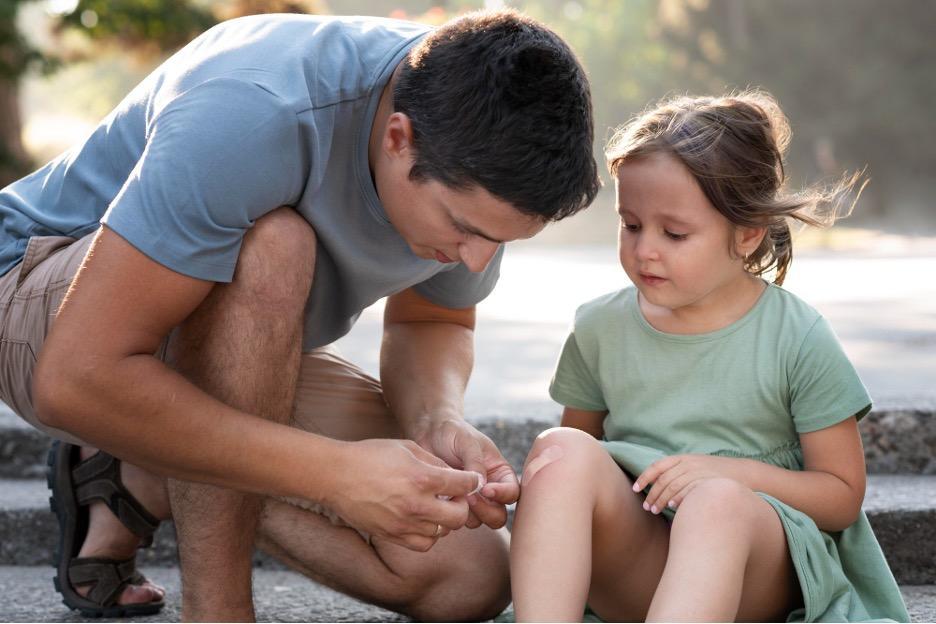
Identifying Stress in Children

Identifying Stress in Children
Stress is a natural part of life and is a biological response to certain experiences. Everyone experiences stress at some point, often starting in early childhood.
Children feel stress when there is something they need to prepare for, adapt to, or guard against. Change often prompts stress — even when it’s a change for the better.
Can Stress Be Helpful ?
Stress is a body’s reaction to situations or things that occur within and outside the body. Stress can be helpful and has been hard-wired into our human physiology for survival.
The body’s stress response is beneficial to help you survive potentially life-threatening encounters.
Stress can go from being helpful and life-saving to unhelpful and life-damaging. Children are especially vulnerable to this repeated stress activation, as their brains and bodies are in a critical and sensitive period of development.
Levels of Stress.
There are three categories of stress: positive, tolerable, and toxic.
Positive stress is necessary and promotes resilience, or the ability to function competently under threat.
Tolerable stress comes from adverse experiences that are more intense in nature but short-lived and can usually be overcome.
Toxic stress can occur when experiences are long in duration and intensity. Children need caring and supportive adults to help them through these experiences. It is very difficult for children to handle this type of stress on their own.
Causes of Toxic Stress.
* Frequent, intense and poorly resolved conflict between parents, family members or friends.
- Abuse or neglect.
* Over sharing adult matters such as divorce or finances.
* Separation anxiety.
- Academic pressure, grades and tests.
- Over scheduling.
- Fear of failure.
* Intense competitive sports or coaches.
- Fear of not fitting in.
- Peer pressure.
- Bullying.
How Does Stress Affect the Brain?
Toxic stress has the potential to change our child’s brain chemistry, brain anatomy and even gene expression. Toxic stress weakens the architecture of the developing brain, which can lead to lifelong problems in learning, behavior, and physical and mental health.
The consequences of toxic stress can include continued anxiety as well as impaired memory and mood control.
Toxic stress can compromise the functioning of the nervous and immune systems. It can lead to health problems later in life including alcoholism, depression, eating disorders, heart disease, cancer, and other chronic diseases.
How Can I Tell If My Child Is Stressed?
As a parent, you know your child better than anyone else and will be able to pinpoint signs of stress, such as:
- Aggression.
- Avoiding school.
- Bed wetting.
- Clinging.
- Tired during school or other activities
- Crying.
- Change in sleeping patterns.
- Difficulty concentrating.
- Mood swings.
- Physical symptoms.(headache, stomach ache, panic attacks)
- Withdrawing from family and friends.
Stress Management For Our Children.
- Give children and teens extra support, encouragement, love, affection and care. Be there to listen and talk.
- Spend positive time together.
- Give children a chance to use their strengths in everyday life.
- Create a safe and nurturing environment.
- Manage our own stress and anxiety, especially around children.
- Model how to handle difficult and uncomfortable situations.
- Refrain from venting or alienating them from others.
- Avoid sharing strong opinions and strong topics.
When to See a Pediatrician.
A Pediatrician is a source of support for your child's physical and emotional wellness. They can help identify what is causing your child’s stress and anxiety. A plan can be created to effectively manage your child's symptoms.
Your Pediatrician will talk to you and your child about what is triggering these symptoms, as well as questions about family history of anxiety or depression.
Together, you will support your child and improve their mental, physical and spiritual health.
" In the middle of difficulty, lies opportunity “— Albert Einstein
As always, the staff at Healthy Kids Care at Sunrise are here to answer your questions and assist with any concerns.
In Health,
Dr. Atousa
You Might Also Enjoy...


Understanding and Preventing Childhood Injuries

Creative Ways to Promote Healthy Eating in Children

Recognizing the Signs of Anxiety in Young Children and What Parents Can Do?

10 Tips for Better Sleep Hygiene


